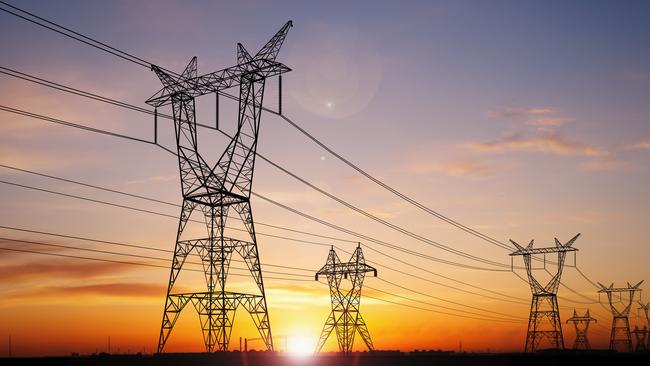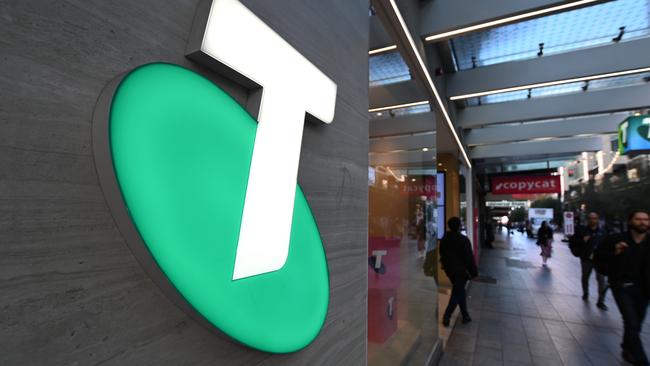
Moreover from 2025, all of Mercedes-Benz’s “newly-launched vehicle architectures will be electric-only.”
Parallel with that major motor change, there is a revolution coming in the distribution of energy akin to what happened in mobile phones. But the energy revolution will be bigger because it will be linked to a transformation in the use of databases. Existing electricity retailers like AGL and Origin face both an opportunity and possible catastrophe.
A couple of decades ago phone companies like Ericsson and Nokia were in the prime position to lead the then looming mobile phone boom.
But they took too long to understand that the mobile phone would be an internet device. That opened the way for the big computer companies led by Apple to take the business away from the old phone companies.
We are set for a similar revolution in the distribution of electricity.
The early Australian manoeuvrings around this revolution are focusing on AGL and Telstra, but the forces that are building up will embrace many more companies.
AGL is Australia’s biggest electricity and gas retailer. It plans to split its business between power generation and power distribution.
The idea of splitting off power generation is being justified on the basis of separating out the carbon side of the business. In many ways that is a side issue when compared with the other forces in play.
In the good old days power and gas retailing was a great business because as your costs rose you were allowed to increase your prices. Huge bureaucracies were established.
Now state governments are making it much tougher and efficient low-cost retailers are moving into the distribution space and cutting prices and margins.
They don’t have old bureaucracies and power generation operations weighing them down and are able to play the power markets to minimise their purchase costs. But the key to their operations is efficient databases.
The main task of power retailers like AGL and Origin is to make sure that their databases and distribution systems are in the bottom cost quartile. That’s a new skill and it’s only the start.
The traditional electricity retailers face the might of competition from the databases owned by telecommunications companies like Telstra, which has already gone through an AGL-type separation.
Telstra no longer controls the “fixed wires” which were transferred to NBN and has been forced to think about the future of its business, minus control over much of its infrastructure.
Telstra concluded that it that had to have an efficient database because that became a core part of its business. There is still work to be done in this area.

Telstra also concluded that in the future most households would need two base input services---- the internet / telecommunications and electricity, which would encompass car fuel. The distribution systems were remarkably similar.
And so some years ago Telstra decided to go into the power business and combine its internet and database skills to distribute both telecommunications services and power.
It has been assembling sources of power in a way that will enable it to be carbon neutral. But the main game is making sure that its database can efficiently handle both services. If that can be achieved then the opportunities are almost mind-blowing.
The combination of power and telecommunications services being distributed using the same systems will provide data of incredible value.
At the moment there are clear restrictions on how that data can be used and both on a global and Australian basis the level of restriction is going to increase.
But a great many people will be happy to allow their data to be used in exchange for very cheap power prices or an attractive total package of power and telecommunications.
A service provider in that situation will be able to tell customers which appliances best suit their usage patterns; how to automate heating and cooling switching and a raft of other services by combining mobile created positioning and power usage.
For example, if you are living in one residence and there’s a sudden surge of power in your holiday home you can be alerted because it may mean your teenage children are having a party.
But seriously, within a decade many homes will have power car charging facilities so the power retailer will take over a lot of business from the petrol distribution companies. That’s a huge revolution in its own right and the petrol retailing companies, in the light of the Mercedes and other announcements, must be thinking about whether they should enter the electricity distribution business. Few of them have databases although BP is attempting to set one up via Qantas frequent flyer points.
It’s likely that Telstra rivals like Optus and Vodafone will ponder whether they should allow Telstra to have a free run providing the combination of power and telecommunications services. They may consider buying a small power company to get them into the business. Suddenly we see the potential of the mobile phone experience being duplicated in power.
These sort of projections will only work if the combination of telecommunications and power distribution is efficient and offers good service when things go wrong.
There is no reason why a company like AGL can’t use its data efficiently and become a data company. But it has never seen itself as a data company but rather as a gas and electricity producer and retailer. It’s a huge cultural change.
Telstra was lucky - its cultural change was forced on it by the government’s NBN establishment and Telstra also received a pile of cash.


We know electric cars are coming but when Germany’s Daimler announced this week that its Mercedes-Benz brand would “be ready to go all-electric at the end of the decade where market conditions allow”, it showed the revolution is now very close.